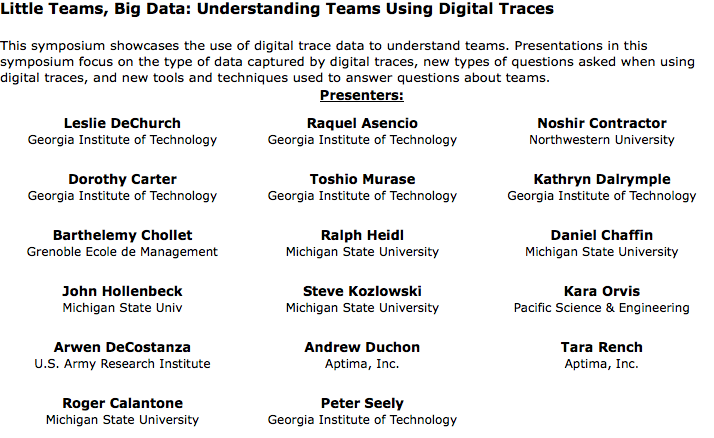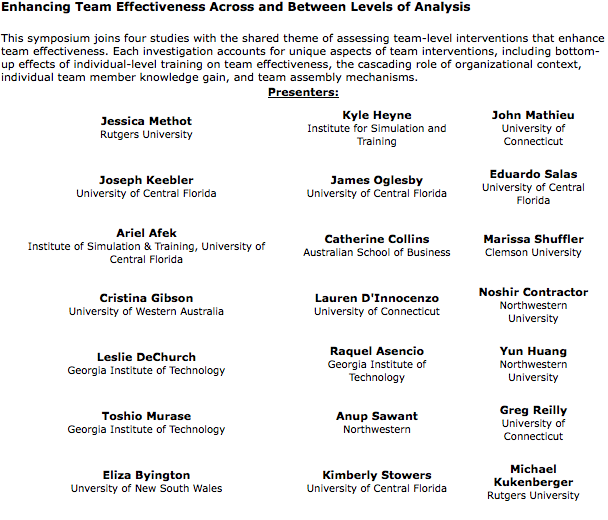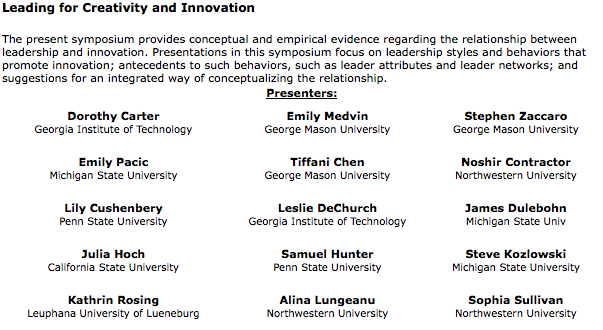Noshir Contractor participated in a panel titled “Homophily, Familiarity, and the Self-Organization of Creative Teams” at the Society for Industrial & Organizational Psychology Annual Conference on May 16, 2014
Work on SONIC MTS Study Presented at ICA Annual Conference
The paper “Sequential Structural Signatures of Success in Teams and Multiteam Systems” was presented at the ICA annual conference in Seattle, WA. The paper was written by Aaron Schecter and Noshir Contractor of the SONIC lab along with collaborators Roger Leenders and Leslie DeChurch.
Noshir Contractor participated in a symposium titled “Little Teams, Big Data: Understanding Teams Using Digital Traces” at the Society for Industrial & Organizational Psychology Annual Conference on May 15, 2014
Noshir Contractor participated in a symposium titled “Enhancing Team Effectiveness Across and Between Levels of Analysis” at the Society for Industrial & Organizational Psychology Annual Conference on May 15, 2014
Noshir Contractor participated in a symposium titled “Leading for Creativity and Innovation” at the Society for Industrial & Organizational Psychology Annual Conference on May 15, 2014
Noshir Contractor participated on a panel titled “Using Big Data to Advance Psychological Theory: Report From the NCI – Big Data for Theory Advancement” at the Association of Psychological Science annual conference on May 25, 2014
For more information, see here
FTC: Data Brokers Know You Better Than Mom Does
Federal Trade Commission report calls for restrictions on data brokers, finds companies gather billions of consumer transactions daily, largely without public knowledge. Companies that silently gather data on consumers should be more transparent about what they do and should give consumers more control over the information they collect. http://ubm.io/1oNQHPn
Microsoft’s Nadella: We’re In ‘Post-Post’ PC Era
Microsoft CEO Satya Nadella introduces Skype Translator, says we’ve entered a “post-post” digital world in which personalized experiences instead of specific devices will rule the day. http://ubm.io/1gFn8zp
Data Scientists: Stop Searching, Start Grooming
Don’t put your big-data project on hold — members of your current staff may be the best fit for your data science team. Data scientists, like fire-breathing dragons, may exist. But I submit that your organization does not need either of them to solve business challenges. Rather, data-related problems are best handled by your software developers in tandem with your business analysts. Read the full article at: http://ubm.io/1gFmG3Z





